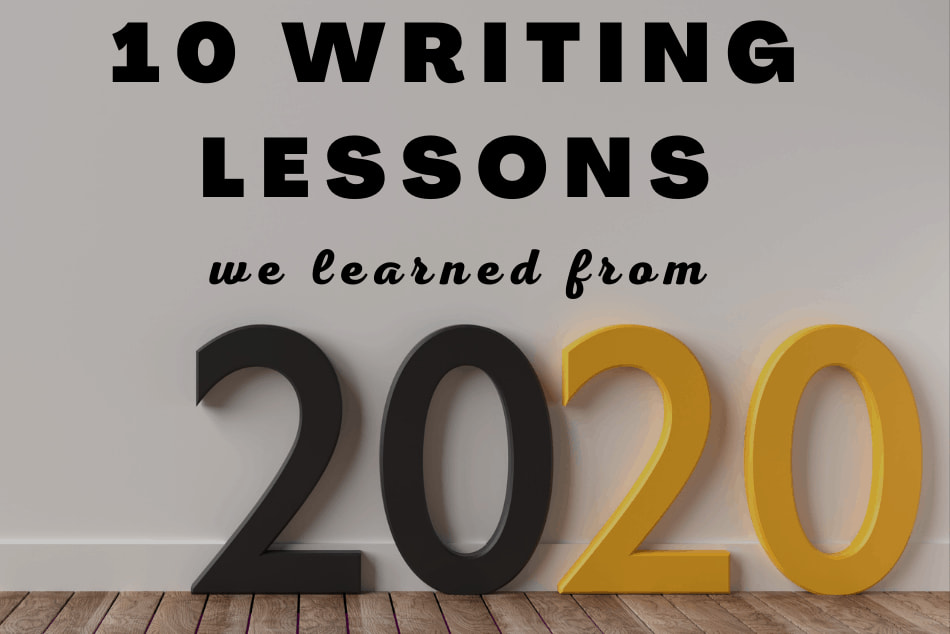Hindsight is 2020. I stole that great line from my son Greg Bergman, Editor-in-Chief for capitalwatch.com. This year was a nightmare, but we did learn a lot—the hard way—about our industry, ourselves, and each other.
1) Backlist matters.
As terrible a year as this may have been for frontlist (books published in 2020, especially in earlier in the year), backlist (books published before 2020) sold very well. Stuck at home, lots of people turned to reading for escape, entertainment, and enlightenment—and when they did, they often turned to the authors they already knew and loved. That’s why book sales were actually up this year—6.4% for print books alone—and established writers benefited the most. The industry typically neglects backlist, but that changed this year. Let’s hope that this new focus on backlist sales extends beyond the pandemic. And that frontlist rebounds.
2) Zoom events can work.
You have to feel sorry for those debut and midlist writers whose books came out in March, April, May, and June. With so many bookstores closed, all in-store book events were canceled, along with the book festivals and conferences and library events that celebrate authors and books. Those publishers that had ignored online events and digital marketing (and there were many) were dragged kicking and screaming into the 21st century, scrambling to create digital promotion and marketing campaigns as well as online events before they were completely left behind.
3) Writers write.
This year taught us that you can write at your kitchen table with your spouse working from home and your kids schooling from home and your dogs and cats barking and meowing from home. Or not. Either way, we all learned something about the way we work best—and how to carve out our sacred writing time no matter what happens or where you are or who’s in your face.
4) Writers write. Part Deux.
Writing under the aforementioned circumstances may have proved that you do indeed require, as Virginia Woolf warned us nearly a century ago, “a room of one’s own.” I’d been working mostly from our living room, my upstairs office serving double duty as the guest room where my son spent the early months of the pandemic before returning to the city.
When I was asked to do an interview with WABC TV with Sandy Kenyon, including footage of me at my desk, I realized that I needed to get a desk. I got one and reclaimed the guest room as my writing space. It’s the perfect hideaway as I plug away on book four in my Mercy Carr series.
Do yourself a favor: Get a desk and put it in a room of your own. It doesn’t need to be pink, but pink is pretty. I’m just saying.
5) Readers will buy books written by diverse authors.
In fact, they clamor for them—as they did this year, for books with multicultural and social justice themes. We knew that all along, but now publishers know it, too. And the world will be a better place for it.
6) It’s never too late to sell the film/television/performance rights to your work.
Hollywood has remembered what it from time to time forgets (at its peril)—that the best movies/series/shows are (almost) always based on books. Hollywood has been on a buying spree—and why not? Look at The Queen’s Gambit, a huge hit for Netflix, and anyone selling chess sets, chess lessons, and books about chess.
Including The Queen’s Gambit, the 1983 novel upon which the limited series was based, whose author, Walter Tevis died in 1984. (He was around to see his novels The Hustler and The Man Who Fell to Earth on the silver screen.) May your story be the next shiny object Hollywood grabs for adaptation.
7) Cabernet and Cheetos can cure writer’s block.
At least it does wonders for mine. We’ve all been stressed out this year, so whatever gets you to the page is a good thing. Note: You may have to give it up post-pandemic, but let’s worry about that next year.
8) Your writer friends are only a tweet/post/podcast/zoom room away.
For many of us, being cut off from our fellow writers has been one of the hardest parts of this horrible year. As an agent, author, editor, and writing teacher, I spend virtually all my time with writing and publishing folks—my people!—and their sudden absence sent me into a tailspin. Social media and virtual meetings and online book events saved me. While it’s not the same—and I will undoubtedly cry my way through the first in-person event I attend post-pandemic—for now it’s all we’ve got, and I am grateful for it.
9) Indies still rock.
Independent bookstores—the very heart and soul of the book business—were experiencing a kind of renaissance before the pandemic. These stores took a heartbreaking hit, but the community is rallying with in-store appointments and curbside pick-up and online book events. Not to mention bookshop.org, the online bookseller where indies without e-commerce can sell books to readers. Support your independent bookstore—online or in person, in good times and bad. Forever.
10) Your plot is not too far-fetched.
The next time someone tells you your plot is “unrealistic,” all you have to say is “2020.” Because this year proved that anything is possible—for better or worse.
So let’s get to work. Because we have stories to tell. (If you’ve survived 2020 and don’t have a story to tell, you haven’t been paying attention.)
Kiss 2020 goodbye. And let’s write our best books ever in 2021.
This post originally published at CareerAuthors.com.

